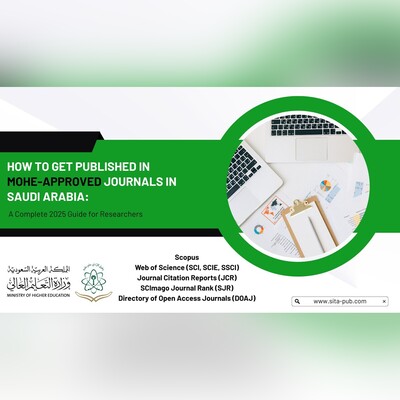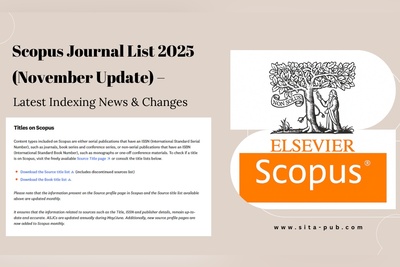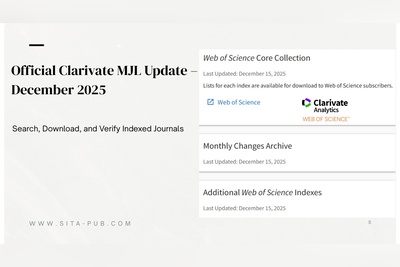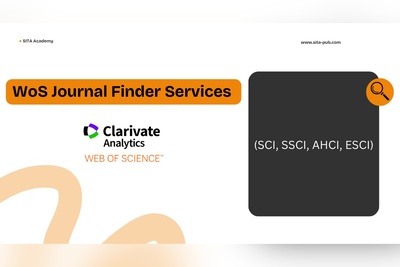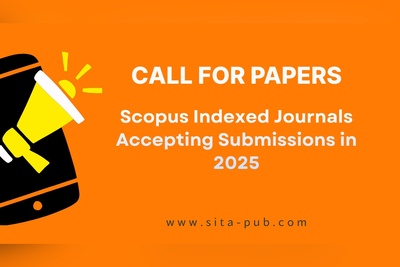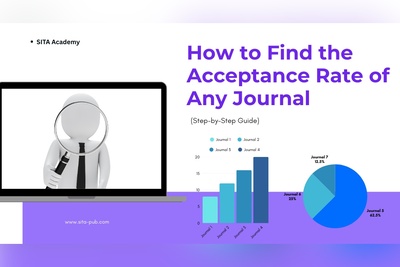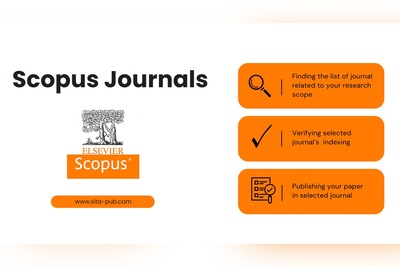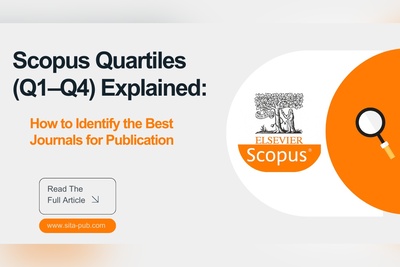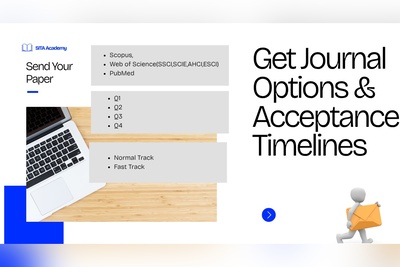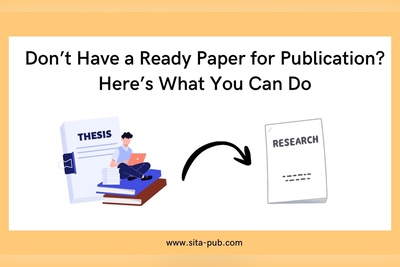Top Fast-Track Scopus & ISI Journals for Researchers in Saudi Arabia
Facing tight academic deadlines? This step-by-step guide helps Saudi students and faculty find reputable fast-track Scopus and ISI journals and publish efficiently and ethically.
- Understanding the Urgency: Why Speed Matters
- How to Find Fast-Track Scopus & ISI Journals
- How to Verify Credibility and Indexing
- Understanding Journal Metrics: What Really Matters?
- How to Align Your Paper with Journal Expectations
- Preparing Supporting Materials for Submission
- When to Seek Professional Publication Help
- How Long Does the Process Take?
- Leading Saudi Universities Supporting Scopus and ISI Publications
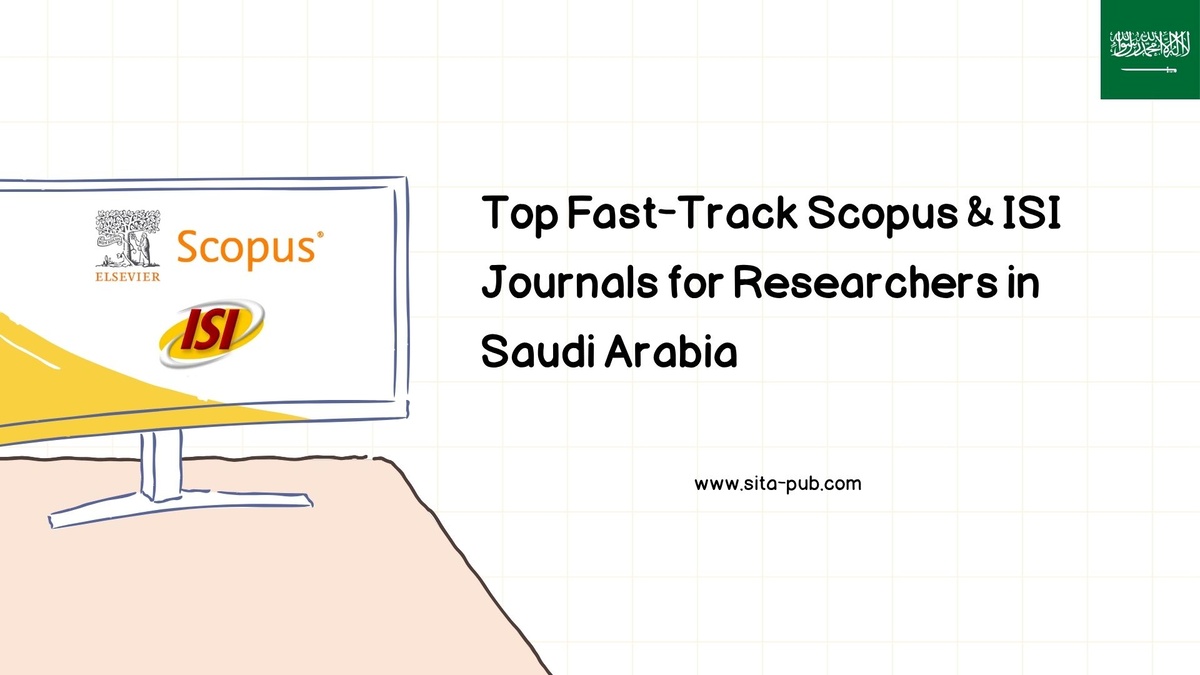
The journey to publishing a research paper is often the culmination of months—if not years—of careful study, analysis, and dedication. Whether you're a professor aiming for promotion, a PhD student trying to graduate, or a junior researcher hoping to build a global academic footprint, choosing the right journal is crucial. For faculty and students in Saudi Arabia, this decision is even more important—especially when the paper must be published in Scopus- or ISI-indexed journals within a tight timeframe.
In this guide, we’ll walk you through how to find fast-track journals, verify their credibility, understand journal rankings, and most importantly, how to prepare your submission to maximize your chances of success.
1. Understanding the Urgency: Why Speed Matters
Saudi academic institutions often set strict deadlines for:
Graduation requirements
Faculty promotions and academic rank upgrades
Grant approvals or renewals
Job applications or international scholarship eligibility

Delays in publication can impact your entire academic or professional trajectory. Hence, identifying journals with short review timelines (typically 1–3 months) and moderate-to-high acceptance rates becomes a key strategy.
That said, fast publication should not come at the cost of credibility or academic integrity.
2. How to Find Fast-Track Scopus & ISI Journals
Finding fast-track journals doesn’t mean compromising on quality. You just need the right tools and strategy.
Use Official Journal Databases:
Start by verifying journals using the following databases:
Scopus Sources List: https://www.scopus.com/sources
Clarivate Journal Citation Reports (JCR) for ISI journals: https://jcr.clarivate.com
Scimago Journal Rank (SJR): https://www.scimagojr.com

These platforms offer information about indexing, quartile, SJR score, and subject classification.
Use Journal Finder Tools:
These tools can suggest suitable journals based on your research abstract:
Elsevier Journal Finder
Springer Journal Suggester
Wiley Journal Finder

You input your paper’s title and abstract, and the tool recommends journals, often with estimated timelines for publication.
3. How to Verify Credibility and Indexing
With the growing number of predatory journals, ensuring legitimacy is critical.
Check Indexing Status:
Look up the journal directly on the Scopus or Web of Science websites.
Confirm the publisher’s reputation.
Check if the journal is listed on DOAJ, COPE, or in your university’s approved list.
Red Flags to Avoid:
Claims of acceptance within 3–5 days
Use of unprofessional email domains
Charging high APCs before peer review
No clear information about peer review or editorial board
Use the official checklist from Think. Check. Submit.: https://thinkchecksubmit.org
4. Understanding Journal Metrics: What Really Matters?
Knowing how to evaluate journals is key to choosing the right one.
Quartile Ranking (Q1 to Q4)
Q1 = Top 25% of journals in a field (highly competitive and prestigious)
Q2 & Q3 = Balanced between quality and accessibility
Q4 = Lower-tier journals that are still indexed but often faster in processing
Impact Factor vs. SJR
Impact Factor (Clarivate): Measures average citations in ISI journals.
SJR (Scopus Journal Rank): Evaluates prestige and influence based on citation links.
Acceptance Rate
Although rarely published, some Scopus Q3/Q4 journals have acceptance rates ranging from 20% to 40% — giving you a better chance if your paper meets the scope and guidelines.
5. How to Align Your Paper with Journal Expectations
Even the best research can be rejected if it doesn’t fit the journal. Matching your work to the journal’s mission increases your success rate.
Read the "Aims & Scope"
Make sure your paper aligns with the topics and priorities the journal publishes.
Adapt your abstract and key findings to reflect that alignment.
Choose the Right Keywords
Select 5–7 keywords that match those used by the journal.
Check similar papers in the journal and mirror their terminology.
Article Type Matters
Some journals only publish original research, while others allow reviews, short communications, or case studies.
Follow Reporting Guidelines
Use applicable checklists such as PRISMA, STROBE, or CONSORT to improve clarity and structure.
6. Preparing Supporting Materials for Submission
To improve your chances, go beyond just submitting a manuscript.

Write a Strong Cover Letter
Introduce your research clearly and concisely.
Mention how your paper aligns with the journal’s mission.
Confirm that the submission is original and not under review elsewhere.
Include ORCID iD
Most journals now require authors to have an ORCID profile for identity verification.
Use an Official Academic Email
Submissions from a university domain (e.g., [email protected]) and adding your author affiliation appear more credible.
Suggest Reviewers (Optional but Helpful)
Recommending reviewers can speed up the peer review process.
Avoid suggesting anyone from your institution.
Declare Ethics and Funding
For health, social, or funded research, provide ethics approval and funding source.
7. When to Seek Professional Publication Help
Publication can be overwhelming, especially under tight deadlines.
Consider Assistance If You:
Have limited time before graduation or promotion
Are unsure about journal matching
Need language editing or translation
Are not familiar with formatting and submission requirements
What to Avoid:
Services promising guaranteed publication in Scopus/ISI
Journals with unclear or suspicious indexing claims
Ethical Support Options:
Academic consultants offering journal selection
Scientific language editing
Assistance with formatting and peer-review preparation
8. How Long Does the Process Take?
The publishing timeline varies depending on the journal and your preparedness.
Step | Estimated Time |
Manuscript Preparation | 1–3 weeks |
Journal Selection | 1 week |
Submission & Initial Check | 1 week |
Peer Review | 4–8 weeks (avg) |
Revisions (if needed) | 1–3 weeks |
Final Decision & Proofing | 1–2 weeks |
Total Time | ~2 to 3 months |
Some journals offer fast-track or accelerated review options, especially for special issues.
9. Leading Saudi Universities Supporting Scopus and ISI Publications
Several universities in Saudi Arabia have established dedicated research centers and support offices to assist faculty and students in publishing their work in reputable Scopus- and ISI-indexed journals. These institutions provide valuable resources, including training, journal recommendations, and funding to help meet academic publishing requirements.

Notable universities with strong publication support include:
King Abdulaziz University (KAU), Jeddah — Offers research support programs and workshops focused on Scopus and Web of Science publications.
King Saud University (KSU), Riyadh — Houses a Scientific Research Deanship that provides assistance with journal selection, manuscript review, and funding for high-impact publications.
King Fahd University of Petroleum and Minerals (KFUPM), Dhahran — Known for promoting publications in high-ranking indexed journals and providing publication fee support.
Imam Mohammad ibn Saud Islamic University (IMSIU), Riyadh — Provides guidance and training on publishing ethics and indexing databases.
Princess Nourah bint Abdulrahman University, Riyadh — Active in supporting female researchers to publish in internationally indexed journals.
Being aware of these resources and leveraging your university’s publication support services can significantly improve your chances of success in publishing your research within the required timeframes.
Saudi researchers don’t just need to publish fast — they need to publish smart. By investing time in proper journal selection, formatting, and preparation, you not only improve your odds of getting accepted but also build a strong academic profile that will serve you for years.
To recap, here’s what to focus on:
Use official databases for journal selection
Understand quartiles, SJR, and impact factor
Align your paper with the journal’s goals
Prepare a professional submission package
Avoid unethical shortcuts and predatory practices
Journal Selection Assistance at SITA Academy
Struggling to find the right journal for your research paper?
Let our experts at SITA Academy guide you.
Personalized Journal Recommendations
We match your paper with Scopus- and ISI-indexed journals that align with your topic, scope, and urgency.
Ethical & Verified Options Only
Avoid predatory journals and time-wasting guesses. We ensure credibility, indexing status, and compliance with your university’s publishing standards.
Support for Fast-Track Publishing
Need to publish quickly? We help you target Q3/Q4 journals with faster review cycles.
How SITA Academy Helps You Choose the Right Journal

Send Your Paper Abstract |

Receive Journal List |

Select Your Journal |

Start the Publication Process |
